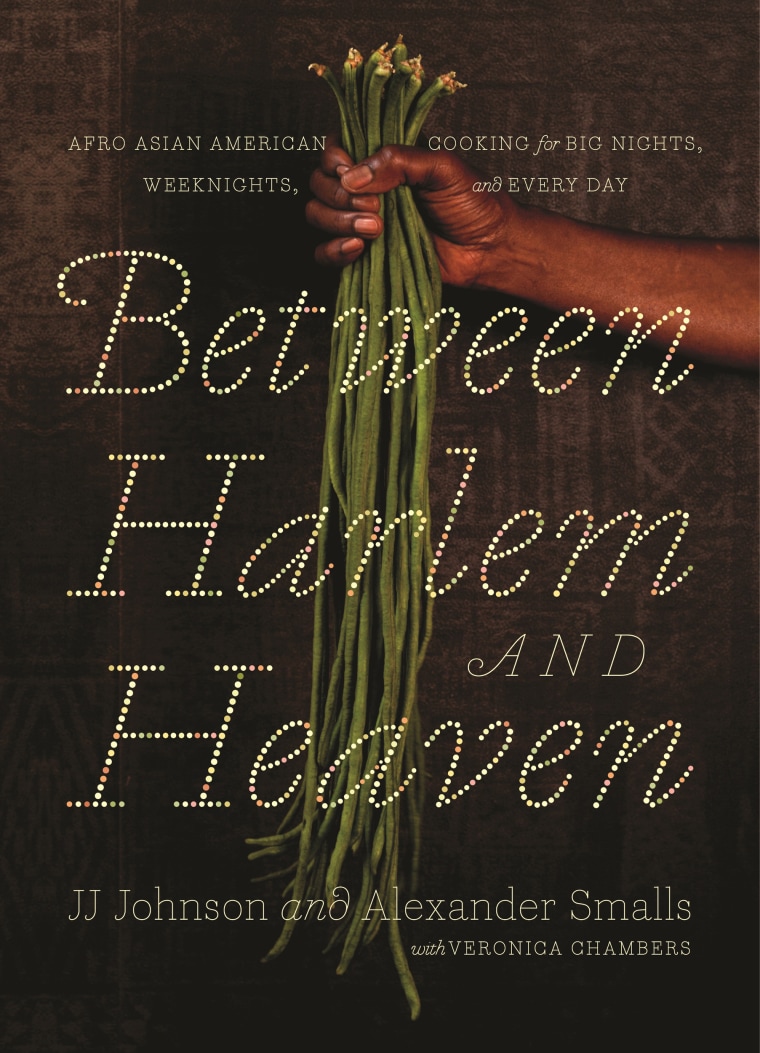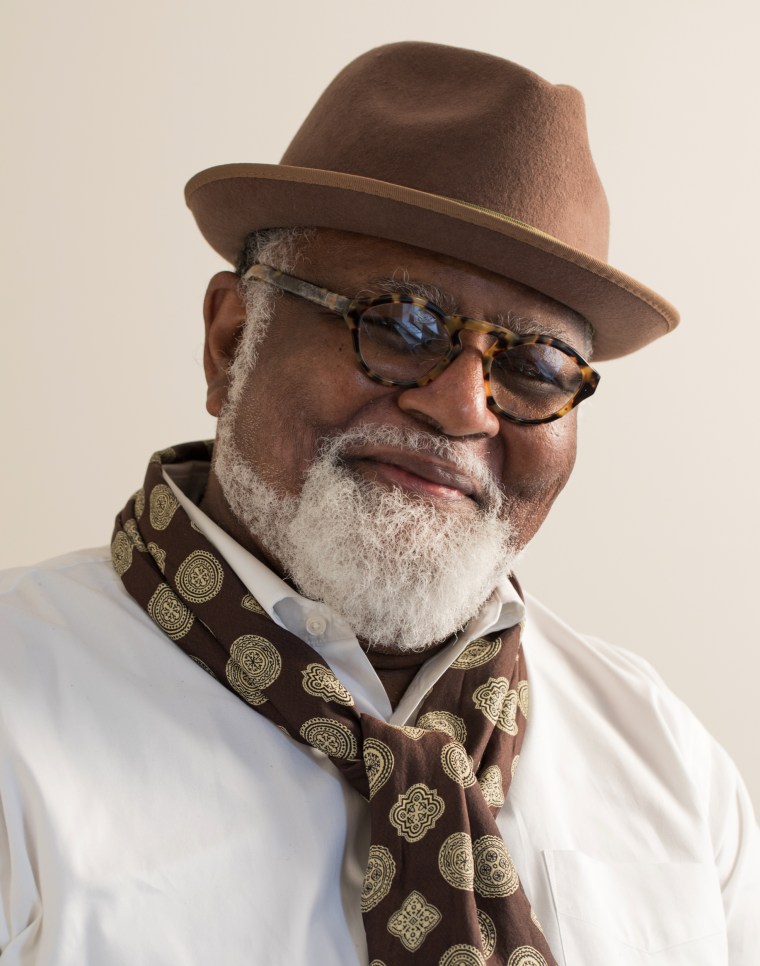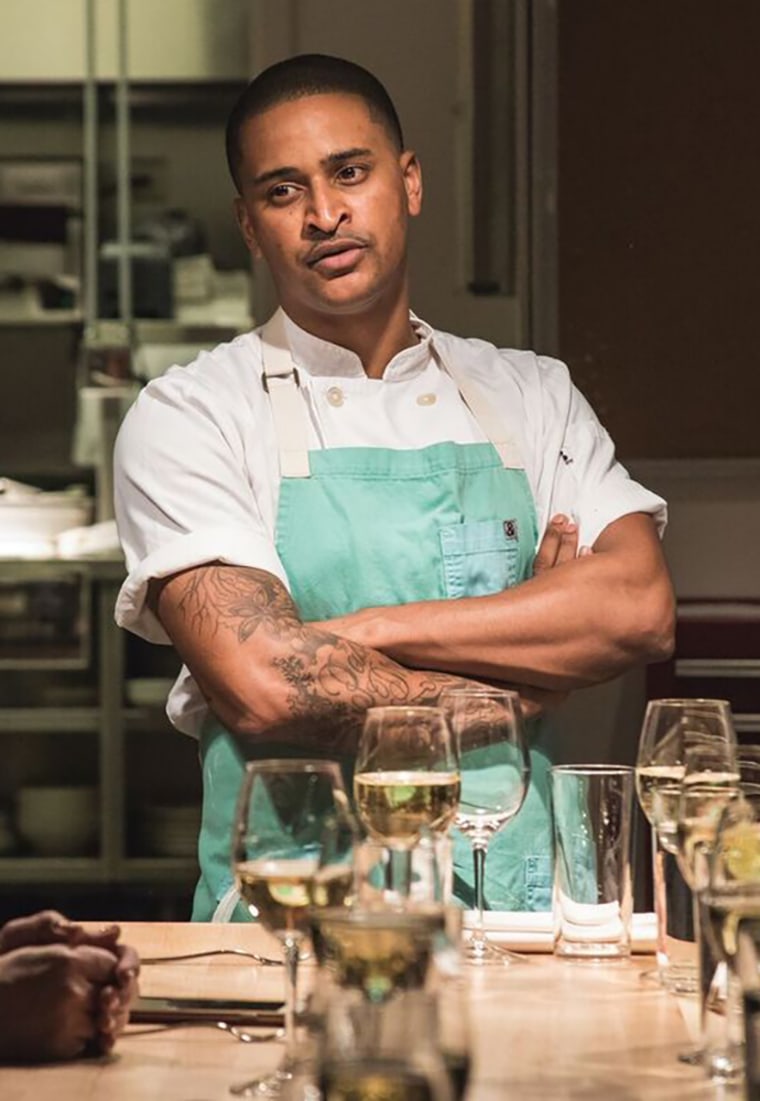On a mission to elevate the conversation about the black culinary experience and share recipes and culture of the vast African diaspora, restaurateur Alexander Smalls has joined forces with award-winning chef Joseph “JJ” Johnson.
The duos’ new book, “Between Harlem and Heaven: Afro-Asian-American Cooking for Big Nights, Weeknights and Every Day is a 272-page tome serving up more than 100 recipes and taking foodies on a time-spanning journey around the world and back to Harlem — the very same New York City cultural epicenter where the two cooks have enjoyed success at the popular restaurants The Cecil and Minton’s.

The hefty hardcover, written with best-selling author Veronica Chambers, features some of the restaurants’ popular recipes, along with new ones created from the chef’s global travels.
A native of Spartanburg, South Carolina, Smalls was a Tony and Grammy Award-winning opera singer before embarking on an award winning second act as an in-demand caterer to the Manhattan elite and later as a top-rated restaurateur. His elevated style of Southern cookery — laid out in full splendor with his 1997 tome, “Grace the Table: Stories and Recipes from My Southern Revival,” gained him a loyal following.
Johnson, hailing from Pennsylvania’s Pocono Mountains region, is a graduate of the Culinary Institute of America and has worked in some of New York City’s finest establishments, including Tribeca Grill and Centro Vinoteca. He competed on the Food Network series “Rocco’s Dinner Party” and judged the competition show “Chopped.”

Together, the two chefs won over critics with their modern styled fusion fare at The Cecil, an upscale restaurant in Harlem founded by Smalls and business leader Richard Parsons. In 2014, “Esquire” magazine named the brasserie the “Best New Restaurant in America.”
NBCBLK spoke to Smalls and Johnson about their passion to set the record straight on the complexity and breadth of African-American cuisine and their thoughts on Black History Month.
[This interview has been edited and condensed for clarity.]
NBCBLK: How did you two come together?
JJ Johnson: Alexander emailed me one day. He saw me on television and then we kind of hit it off from there starting in like 2011, 2010. He was the first person to truly ever believe in me and really let me take the helm of the kitchen. That was my first time being able to run my own kitchen with my name on the bottom of the menu. That's kind of where it all started. Alexander tells the story better than me though. He saw me on “Rocco's Dinner Party” and he said that I reminded him of his father.
Alexander Smalls: You cooked the dish my father always cooked; shrimp and grits.
JJ, you’re lucky to have such an esteemed mentor and one who sought you out.
Johnson: I mean I have always looked for mentors, I could never find anybody that wanted to mentor me so yeah, it was good [to find] somebody to bounce ideas off of, somebody to talk to about your struggles and somebody to help you down ... what I call the yellow brick road, say get on the yellow brick road. But then my mentor turned into my boss at one point but he still mentored me along the way.

Alexander, you've been a big proponent of furthering the conversation about black people, not just being limited to cooking “soul food.” Is this book a continuation of those beliefs?
Smalls: You know, my mission was always to elevate the culinary art and the African-American community in the way in which Europeans and the White Americans sought to do that for the food they were cooking. You know, it was a hard war won because unfortunately African-Americans had to overcome the stigma of soul food.
Now before the audience rushes in to attack me, I'm not knocking soul food. I'm simply saying that's not everything we do nor is it the story of our legacy and who we are because if you want to talk about soul food, our ancestors cooked everything from French, to Italian, to highbrow whatever and however they knew how. So, with that said I wanted to further the conversation with Afro-Asian-American cooking. I wanted to take us beyond just the African-American story and give ourselves a global context and this is what we do in this book.
So why Asia out of all the places in the world?
Smalls: Well, because we have an organic relationship. There were slaves in China that came back through the Shang Dynasty of the 1500s… You have Africa on the five continents essentially as the foundation of agriculture and cooking and so that's our story. And that's a story that wasn't being told, hence why we had to create Afro-Asian-American cooking.
If Black History Month were a flavor, what would it be?
Johnson: I mean, Black History Month should be every month. And that's really what we are trying to express in this book, that the African-American diaspora is what has built continents across the world, what has truly built this country through this food. You see these flavors everywhere in everybody's type of food but nobody has given it credit. Nobody has wanted to talk about it and now we are making everybody have the conversation.
Smalls: But let me say this, because I know how this works and I know that the question is important to folks. I would say that a dish that I would love to cook for you that would express the aggregate of the African diet of African-American people would be a big pot of gumbo.

